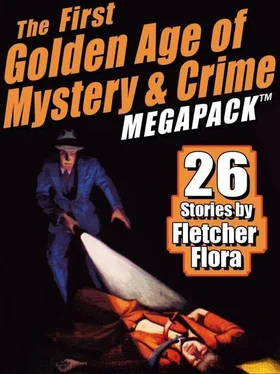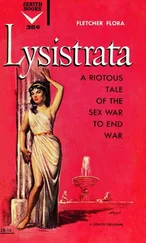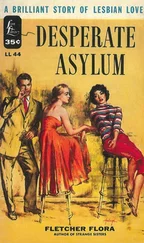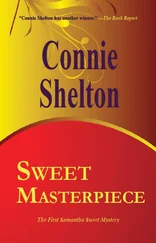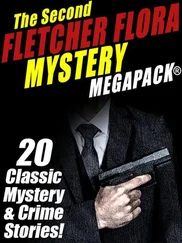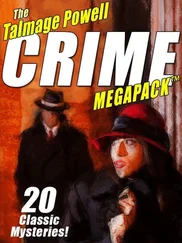I turned off before I reached the house, along the side of a country square. The road descended slowly for a quarter of a mile to a steel and timber bridge across a shallow ravine. There had been water in the ravine in the spring, and there would be water again when the fall rains came, but now the bed was dry except for intermittent shallow pools caught in rock. After crossing the bridge, I pulled off the road on a narrow turning into high weeds and brush. Getting out of the car, carrying the rifle case, I climbed a barbed-wire fence and followed the course of the ravine through a stand of timber, mostly oaks and maples and elms, and across a wide expanse of pasture in which a herd of Holsteins were having breakfast. Pretty soon I left the ravine and cut across two fields at an angle and up a long rise into a grove of walnut trees on the crest. I stopped among the trees and assembled and loaded the rifle, and then I lay down and looked down the slope on the other side of the crest to the house where Nora was supposed to be. There was a stone terrace on this side of the house at the rear. On the terrace was a round table and several brightly striped canvas chairs. Wide glass doors led off the terrace into the house. No one was visible from where I lay under the walnut trees about fifty yards away.
After half an hour, I rolled over onto my back and lay looking up into the branches of the trees where the green walnuts hung, and I began to remember all the times I’d come here to gather the nuts when I was a kid, sometimes with Nora in the later years. We gathered them in burlap bags — gunny sacks, they were called — and later knocked the blackened husks off with a hammer. For a long time afterward, if we didn’t wear gloves, our hands were stained with the juice of the husks, a stain like the stain of nicotine, and there was no way to get this stain off except to wear it off, and you could always tell the ones who had gathered walnuts late in the fall by the stain on their hands that wore on toward winter.
I could hear a cow bell jangling back in the pasture. I could hear a dog barking. I could hear the cawing of a crow above the fields, and I thought I could hear, closing my eyes, the slow beating of his black wings against the still air. Opening my eyes, I rolled over and looked down the slope again to the terrace, and there was Nora standing beside the table and looking up toward the walnut grove as if she could see me lying in its shadow. She was wearing a white blouse and brown shorts, and her face and arms and legs were golden in the morning light. Drawing the rifle up along my side into firing position, I had her heart in my sights in a second, and I had a notion that it was a golden heart pumping golden blood.
She must have stood there for a full minute without moving, maybe longer, and then she turned and walked across the terrace and through the glass doors into the house, and I lowered my face slowly into the sweet green grass. I could still hear the bell and the dog and the crow, and I could hear the voice of Corey McDown saying that Mark Sanders was just a guy with kinks.
After a while I stood up and went back across the fields to the ravine and along the ravine through the pasture and the woods to the car. Driving to the city, I thought about what I had better do, and where I had better go, and how long it would take to learn to live comfortably with a constant threat, and I decided, although there was probably no hurry, that I might as well get my affairs in order and get somewhere a long way off as soon as possible.
Originally published in Manhunt , Aug. 1960.
It was about six o’clock of a long summer evening, and Lard Lavino had just brought the suppers over from his café. You probably know how it is with meals in a lot of county jails. The sheriff gets an allotment for feeding the prisoners, so much per meal, and if he’s got an economical wife to prepare them he can usually make a little gravy for himself, honest graft, and no one goes hungry in the process. I don’t happen to have a wife, being a bachelor, and so I had this arrangement with Lard to furnish the meals. On paper he charged me exactly the allowance, payable the first of the month, but we had a little kickback understanding between us, not on paper, and it worked out so that neither of us got rich but both of us made a little.
Sometimes Lard sent the meals over, and sometimes he brought them himself. This evening was one of the times he brought them himself. There were only half a dozen of them, guests of the jail being mighty few at the time, and I was thinking I ought to get off my tail and gather in a few vagrants and minor offenders to build up the food allowance for the month, but it had been too damn hot, and still was, to do a lot of things a man would normally do for his own profit. It made me feel even hotter to look at Lard. He weighs about three hundred pounds, just short of it, and the grease was seeping out of his pores to soak his shirt and make a high sheen on his fat, swarthy face.
“It’s hot,” he said. “God Almighty, Colby, it’s hot!”
“Sure is,” I said. “You bring a plate for me?”
“Well, you didn’t say if you wanted one, but I brought it just in case.”
“Good for you, Lard. Saves me a walk over to the café. What’s it tonight?”
“It’s Thursday, Colby. You know what it is Thursdays.”
“Oh, sure. Chicken fried steak, mashed potatoes and cream gravy. Lard, why the hell don’t you shift the menu around now and then? Chicken fried steak on Wednesday, say, and salmon patties on Thursday.”
“What the hell difference does it make if you eat steak on Wednesday or Thursday?”
“Just a thought, Lard. Just something for a change.”
“Nuts. You want me to peddle the trays?”
“Never mind. I’ll do it myself.”
“Well, you better do it right away. Cream gravy ain’t worth a damn if it gets cold, you know. I’ll send back in about an hour for the things.”
He went out, and I distributed the trays before the cream gravy got cold. It didn’t take long because, like I said, there weren’t many guests — one chicken thief, two habitual violators of the peace, a pair of drunken drivers with ten days each, and a farm laborer doing a year minus GCT for sticking his brother-in-law with a pitch fork. The brother-in-law, though perforated, didn’t die.
After serving the six, I came back to my desk and started in on my own plate. The chicken fried steak wasn’t bad, if you had a sharp knife and your own teeth, but there were lumps in the mashed potatoes, and the cream gravy wasn’t worth a damn, as it turned out, hot or cold or lukewarm, which is what it actually was. I was working up an appropriate reprimand for my partner in petty graft when the patrol car stopped out front and Rudy Squires, one of my deputies, came loping up the long brick walk from the street and into the office. Rudy watches Wyatt Earp and Matt Dillon and does the best he can, but he has a big handicap, and the handicap is, he’s stupid. He’s also my cousin, however, and I make allowances for him. This afternoon he’d gone out into the county on business with Virgil Carpenter, another deputy, but now, coming back, he was alone.
“Where’s Virgil?” I said.
“He’s out at Crawley Bratton’s place,” Rudy said.
“What’s he doing out there?”
“Crawley’s got a big fire out in a field near the creek behind his house. It’s a haystack.”
“The hell it is!”
“That’s right. Virg and me were driving back along the road and saw this fire, so we stopped in Crawley’s drive and went down there. Crawley was there with a couple farmers and three or four kids from the other side of the creek, but there wasn’t much anyone could do unless we’d got some buckets and carried water from the creek. Hell, Colby, you can’t put out a burning haystack with a few buckets of water you’d have to carry thirty yards from a creek.”
Читать дальше
